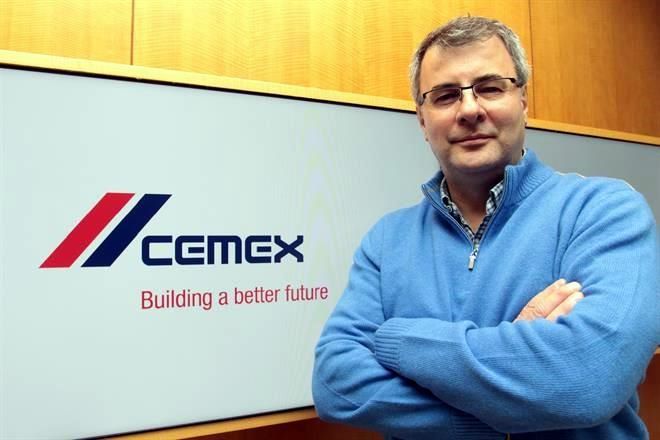I started the decade as the class of 2000, about to finish up 8th grade. I was 14 years old and remember going to y2k party at a friends house, wondering if the lights were going to shut off because of y2k. I thought 24 was really old and couldn’t imagine being that old. It seemed so far away. I can remember the city of Milwaukee’s city hall bells ringing the new year in a few minutes early, thinking it was funny, but also being a bit disappointed that y2k was a bust. After watching far too many episodes of Jerry Springer, Maury and countless 24 hour news channel interviews of crackpots who were preparing for society to break down, it was a little underwhelming to my 14 year old self that the lights didn’t so much as flicker.
The defining event of the 2000s was 9/11. I still remember being in geometry class my sophomore year when someone told me “planes had hit the Twin Towers in New York.” We were scheduled to take a test that day and our teacher was one of the only in the school who didn’t want to get off track. Instead of allowing us to watch the news, she told us “it was only a small private plane, like a Cessna, don’t worry, it’s not a big deal, let’s take the test.” We took the test and by the end of class, we rushed out to the library as the first tower crumbled. I remember watching as the 2nd tower fell and not really believing it was happening. It looked like something out of a movie. After school, it became real as I went to get a splint for my recently and unrelated broken wrist. I remember the real fear the next time I heard a plane fly overhead a few days later.
So much changed after 9/11. America went to war, we had to take our shoes off to fly on airplanes, cable news stations adopted scrolling bars along the bottom of the screen permanently and the media began its full descent into the all out 24 hour news cycle. Americans had to think about terrorism and our role in the world.
The Internet matured and became a part of everyone’s daily lives. After the tech bubble of the late 90s, Americas really started using the internet for everyday tasks. Now, 95% of Americans use email at least once per week. Throughout the decade, Google, Facebook, Wikipedia, Last.fm and tons of other online services changed the way we live, learn, work and play.
More personally, I got to travel all over the United States and the world. Between 8th grade and my freshman year of high school, I took at trip with my Aunt and camped on the beach along the pacific in Olympic National Park. The next summer, I went to Rocky Mountain National Park and camped for a few days. I got my first taste of Europe just before I turned 16, when my Aunt and I walked across Northern Spain and went to Paris. I got to see the running of the bulls in Pamplona and walked from Pamplona to Santiago de Compostela. I loved it and I knew I had been bitten by the travel bug. I knew I would go back to Europe and see the world.
Back in the states, I learned how to drive and got my license. I played a ton of soccer and still have friends and great memories from my soccer teams from the 2000s. I also continued reffing soccer, a job that I had started when I was 12 in 1997 and continue to this day. I even got to play high school football for a year. I made some great friends in high school and had a ton of fun, learning along the way how to get things done. I think my biggest lesson learned in high school is that authority figures do not know everything. I think that this realization helped me get to where I am today.
I also continued to travel. Our next door neighbors moved to Belgium to teach in an international school and we visited them twice. By 2004, I was able to travel to Netherlands, Spain, France, Belgium, Switzerland, Germany. I biked around the Netherlands with my Dad, went to the 2003 Confederations Cup in Lyon, France (where the French booed our national anthem) and went to the top of an alpine mountain in Switzerland (and the site of a Bond movie). I traveled around Spain with my class senior year and stayed with a great family in Segovia, Spain for a week. I knew that I wanted to travel around the world.
In 2004 I applied to colleges, knowing that I really wanted to go to the University of Wisconsin. At first, I was waitlisted. After a few weeks, I finally persuaded admissions that I should be let in and was accepted to Wisconsin. I remember being utterly shocked when I was waitlisted and even more angry when I lost the lottery for football tickets. Little did I know that losing the football lottery would be one of the best things that has ever happened to me.
I got to college in 2004 and loved every minute. I made some amazing friends, learned a ton and attended hundreds (yes hundreds) of Badger football, hockey and basketball games. I went to the Wisconsin vs. Purdue game where Scott Starks returned a fumble for a touchdown. I remember the crushing defeat at Mighigan State and then traveling to Iowa to visit a friend and go to the Wisconsin football game. If the Badgers won, they would go to the Rose Bowl. Unfortunately, they lost and it was a long drive back to Madison. I was in Milwaukee with one of my best friends, sitting on the glass, when Wisconsin won its 6th hockey national title. I rushed the court when Wisconsin won the Big Ten title and was there when Wisconsin had a #1 ranking in basketball. I loved all of our road trips that my friends and I took as well as the fun times we had doing all sorts of things throughout college. I entered college being able to cook a few things, but not that well. I left loving to cook and being able to make a whole bunch of things.
I ended up buying football tickets on ExchangeHut my freshman year. I was the 1117th registered user. After freshman year, I ended up buying the site with one of my best friends from high school. I learned a ton and met some amazing people and realized that I was an entrepreneur and didn’t ever want to have a boss again. Besides my friends, this realization was the most important part of my college experience.
I was lucky enough that I got to testify before a Congressional Committee, compete in a business plan competition, travel to Facebook for their platform launch and pitch ideas to angel investors. By the end of my first senior year, ExchangeHut had been acquired. I took a second senior year and graduated with a degree in Political Science. By 2009, I started my blog, a consulting company and another startup. I started Capital Entrepreneuers and have started to become part of the Madison community.
I also was able to check a few things off the bucket list. In 2006, I went to the World Cup in Germany and saw the US in action. After the US was eliminated, my friend and I traveled all over Europe, trying to be in countries when the teams were playing. I’ll never forget being in Paris when France beat Spain in the Round of 16, being in an Italian bar in Barcelona during the semi-finals and being in Dublin for the final. It was a great trip and I decided that I would do everything in my power to never miss another World Cup in my lifetime. I was lucky enough to get to live in downtown Chicago for a few months, attend the Superbowl and go to the Final Four. This past summer, I was able to visit my friend Beata in London and travel with one of my best friends in Ireland, England and the Netherlands and went to my first two weddings of friends from college. I also got to do the punt pass and kick competition at halftime of the Wisconsin vs. Michigan game and succeeded.
The 2000s were amazing. I can honestly say that each year has gotten better than the one before it. I can only hope that my next 10 years are as much fun as these past 10. At the end of the next decade, I will 34. That seems old, but not as old as 24 seemed when I was 14. I hope to travel to South Africa this summer to see the World Cup and be able to visit Australia, China and the rest of Asia sometime in the next decade. I would love to go to Brazil for the 2014 World Cup and tour South America. I know I want to live in a foreign country for at least a year at some point and become fluent in Spanish again. I want to continue working for myself and continue to create successful startups. I hope to be reading at least two books per month and continuing to write my blog. Maybe even write a book. Who really knows. I hope that I am healthy, happy and continue to have the good fortune to live like I have in the past ten years.
What are your best memories of the 2000s? What do you think was the defining event for the world and for you personally? What are your goals for 2010s?



![Reblog this post [with Zemanta]](http://img.zemanta.com/reblog_e.png?x-id=012a1d7d-537f-4480-a8fe-24076cdbfc12)